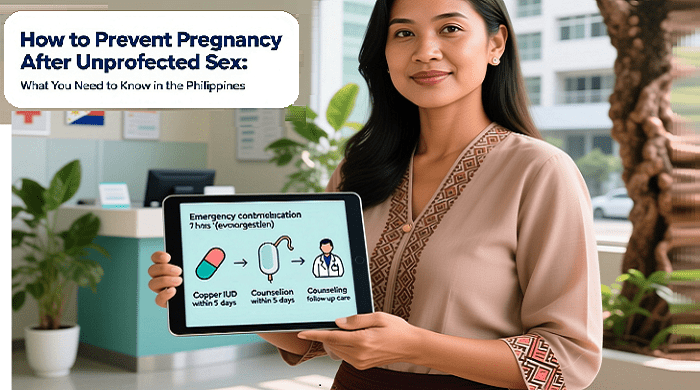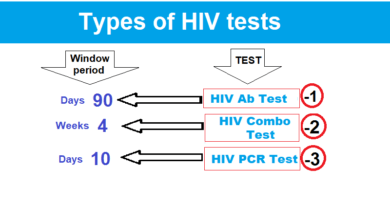How to Prevent Pregnancy After Unprotected Sex: What You Need to Know in the Philippines
Last Updated on 02/09/2026 by Helal Medical
How to prevent an unwanted pregnancy is the most commonly asked question by ladies involved in unprotected sex. Even just once, sex can lead to pregnancy. If you find yourself in such a situation, act quickly. Understand your options. Get precise, trustworthy care. In the Philippines, abortion is illegal under virtually all circumstances. It is especially crucial to be informed about emergency contraception and prevention. (Wikipedia)
What Is “Post-Sex” Pregnancy Prevention?
These options are also known as emergency contraception (EC). They are referred to as “morning-after” methods. These options help reduce the risk of pregnancy after intercourse has occurred. They do not terminate an existing pregnancy. (World Health Organization)
Emergency contraception is most effective when used as soon as possible, and its effectiveness decreases with time. (World Health Organization)
Emergency Contraception Options Available in the Philippines
Here are the main methods you might be able to access in the Philippines:
1. Levonorgestrel Emergency Contraceptive Pill (ECP)
- This is a progestin-only pill (1.5 mg single dose or two 0.75 mg doses). It works by delaying or inhibiting ovulation and thickening cervical mucus, so sperm have more difficulty reaching the egg. (Wikipedia)
- It is most effective when taken within 72 hours (3 days) after unprotected sex. Some efficacy still exists up to 120 hours (5 days), but with lower effectiveness. (Healthline)
- In the Philippines, these emergency contraceptive pills are available in some pharmacies and via certain private suppliers. (PlanB Philippines)
- Note: They are not the same as an abortion pill and do not disrupt an established pregnancy. (PlanB Philippines)
2. Copper Intrauterine Device (IUD)
- A copper IUD (non-hormonal) can function as emergency contraception. It must be inserted by a qualified provider within 5 days (120 hours) after unprotected intercourse. (Planned Parenthood)
- It is considered one of the most effective emergency methods. Some studies show over 99% efficacy. It also serves as an ongoing birth control device if left in place. (Drugs.com)
- However, not all health clinics in the Philippines offer copper IUD insertions on an emergency basis. Access may be limited in rural or underserved areas. (PlanB Philippines)
3. Yuzpe Regimen (Combined Oral Contraceptives as Backup)
- If dedicated emergency pills are unavailable, you have another choice. Use regular oral contraceptive pills that contain estrogen + progestin. These are taken in two doses. One dose is taken instantly, and the second dose is taken 12 hours later. (Wikipedia)
- This method is less effective. It has more side effects as nausea, vomiting, and irregular bleeding. These side effects are more common compared to levonorgestrel-only pills or the copper IUD. (Wikipedia)
- In the Philippines, some sources note that this method is one of the possible options. This is true in areas where “morning-after pills” are harder to access. (Hello Doctor)
Steps to Take After Unprotected Sex
Here’s a practical step-by-step guide:
- Stay calm and act quickly. The sooner you use emergency contraception, the higher the effectiveness. (World Health Organization)
- Access emergency contraception | ECPs. Visit a trusted clinic, hospital, or pharmacy. Some online providers in Metro Manila or Luzon offer same-day delivery for ECPs. (Plan B Philippines)
- Consider the copper IUD. Use it if available. This is true if 72 hours have passed. It is also preferred if you want a very effective way.
- Take a pregnancy test if your period is late.
- Use condoms or barrier in future encounters to reduce both pregnancy risk and risk of sexually transmitted infections (STIs).
Barriers & Realities in the Philippines
- Many Filipinos are unaware of emergency contraception. A recent study cited that only 1 in 4 Filipino women know what it is. (Business World Online)
- “Morning-after pills” are sometimes reported as unavailable or difficult to obtain in certain areas. Some sources say the best options are copper IUD insertion or using the above method. (Hello Doctor)
- Legal, cultural, and religious beliefs can pose stigma, shame, or hesitation when seeking contraception services. (Plan B Philippines)
- The Responsible Parenthood and Reproductive Health Act (“RH Law”) of 2012 entitles Filipinos to access reproductive health services. This includes contraceptive access. But, implementation and availability are uneven across regions. (Wikipedia)
Tips for Choosing & Maximizing Effectiveness
- If possible, choose the method that gives the highest efficacy for your situation (e.g. copper IUD, levonorgestrel ECP).
- Time matters: the sooner, the better. Don’t delay in seeking help.
- Know your cycle. Be aware of when you might ovulate. If ovulation has already occurred, emergency pills are less likely to prevent pregnancy.
- Avoid self-medication with unproven remedies, douching, or herbal abortifacients—these are unsafe and ineffective.
- After taking EC, adopt a regular contraceptive method (e.g. pills, IUD, injectables, implants, condoms) to avoid future emergencies.
- Always verify the legitimacy of clinics, pharmacies, and suppliers, especially for online or delivery services.
Why Emergency Contraception Is Not an Abortion
A crucial distinction: emergency contraception prevents pregnancy; it does not terminate one. It acts by stopping or delaying ovulation. It prevents sperm from meeting the egg. It also alters the uterine environment to make implantation less likely—but only before a pregnancy is established. (World Health Organization)
In the Philippines, abortion is illegal under nearly all circumstances, so safe and legal pregnancy prevention is especially important. (Wikipedia)
When to Seek Medical Help
- If you experience severe abdominal pain, prolonged heavy bleeding, or fever after using EC
- If you vomit within 2 hours after taking an emergency pill
- If your period is delayed significantly or very irregular after EC
- If you suspect you are pregnant
- For STI testing or other sexual health concerns
Local Resources & Further Reading
- Plan B Philippines / Plan B Philippines.com – information about emergency contraception in the Philippines (availability, FAQs) (Plan B Philippines)
- Pulse Clinic Philippines – provides reproductive health services, including emergency contraception in select cities (Pulse Clinic)
- World Health Organization – Emergency Contraception Fact Sheet (international resource) (World Health Organization)
Conclusion
The phrase “how to prevent pregnancy after unprotected sex” can feel frightening. However, knowing your options makes a big difference. Acting quickly is crucial. In the Philippines, emergency contraception is possible despite barriers in access and awareness. It can be achieved through pills, copper IUDs, or the ab0ve (Yuzpe) method. Immediate action is paramount. Consult a trusted healthcare professional. Then, adopt a reliable regular contraceptive method to minimize future risk.
Emergency Contraception PH, Reproductive Health PH, Safe Choices PH
Discover more from Helal Medical Manila
Subscribe to get the latest posts sent to your email.




